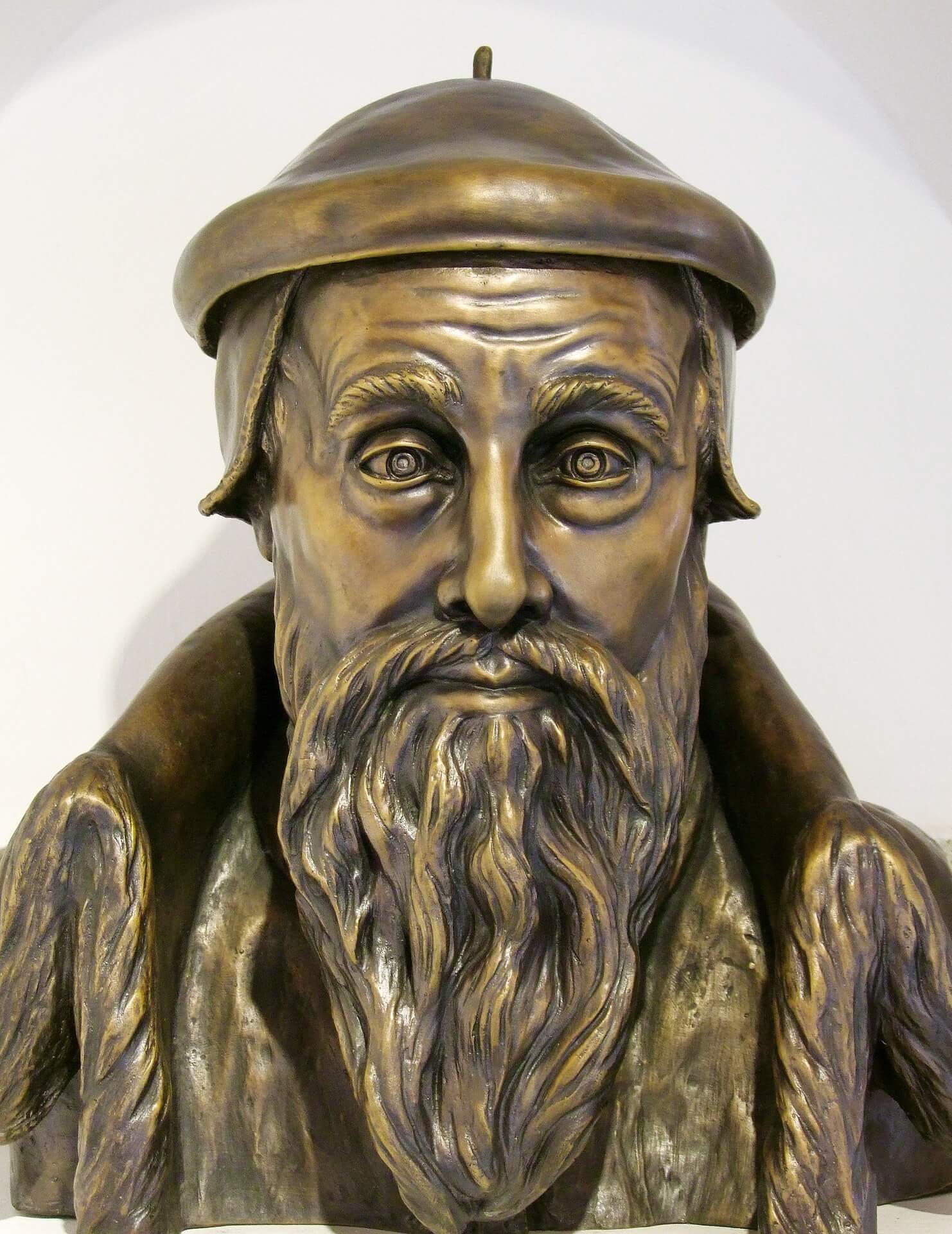Calvin was not a sound logician like Sherlock Holmes, that is evident by the self-contradiction his premises imply.
For example, Peter says:
1 Peter, an apostle of Jesus Christ, to the strangers scattered throughout Pontus, Galatia, Cappadocia, Asia, and Bithynia, 2 Elect according to the foreknowledge of God the Father, through sanctification of the Spirit, unto obedience and sprinkling of the blood of Jesus Christ: Grace unto you, and peace, be multiplied. (1 Pet. 1:1 KJV)
Calvin’s self-contradiction:
After first admitting “elect according to the foreknowledge of God” means “God knew before the world was created whom he had elected for salvation”. Calvin then smears as “sophist” and mere imagination the idea God elected according to His knowledge of the person He knew!!!
“However, he at the same time reminds us whence that election flows, by which we are separated for salvation, that we may not perish with the world; for he says, according to the foreknowledge of God. This is the fountain and the first cause: God knew before the world was created whom he had elected for salvation.
But we ought wisely to consider what this precognition or foreknowledge is. For the sophists, in order to obscure the grace of God, imagine that the merits of each are foreseen by God, and that thus the reprobate are distinguished from the elect, as every one proves himself worthy of this or that lot. But Scripture everywhere sets the counsel of God, on which is founded our salvation, in opposition to our merits. Hence, when Peter calls them elect according to the precognition of God, he intimates that the cause of it depends on nothing else but on God alone, for he of his own free will has chosen us. Then the foreknowledge of God excludes every worthiness on the part of man. We have treated this subject more at large in the first chapter of the Epistle to the Ephesians, and in other places.”-Calvin, J., Translated by Owen, J. (2010). Commentaries on the Catholic Epistles (pp. 24–25). Logos Bible Software.
Sherlock might ask Calvin: “Can God really ignore what He knows when He elects?” Would not ignoring what one knows during the selection process be a sign of feeble-mindedness, or insanity? Can you produce examples of human creators who ignore what they know when creating or choosing materials?
Sherlock Holmes would have concluded from Peter’s “Elect according to the foreknowledge of God” and Paul’s “Election is not according to anything we are or do now” that TWO versions of the Elect must be in existence:
One exists only in God’s Foreknowledge, the other exists today in this fallen realm.
Then, God could elect according to His knowing the “unfallen version” of us before He creation, and not according to what we are now in this fallen world.
Scripture implies what God foreknew:
28 And we know that all things work together for good to those who love God, to those who are the called according to His purpose.
29 For whom He foreknew, He also predestined to be conformed to the image of His Son, that He might be the firstborn among many brethren. (Rom. 8:28-29 NKJ)
In God’s Omniscience, He knows all who would come into existence by His creation. Like “highlighted text” that makes one see some words “before the others”, God “foreknows those who loved Him after He loved them first”, loving them even more. As for those who did not, God ignored them. That is why nothing is said about the Reprobate in Romans 8:28ff. They are irrelevant.
Predestination unto Salvation: Was Divine Election Conditional or Unconditional or Both?
God’s Plan for the Lost
Jesus Preached to the Dead
Elect Rise From Hell On Judgment Day?
Lazarus and the Rich Man: Can the Rich Man Repent and be Saved?
What did the apostle John reveal when he said: “It is the last hour”?
The Coming False Christ and His Followers Revealed
